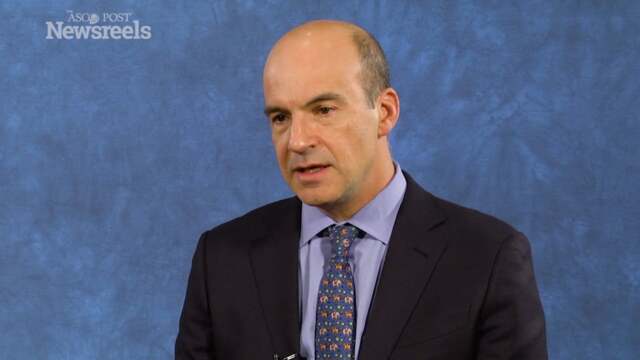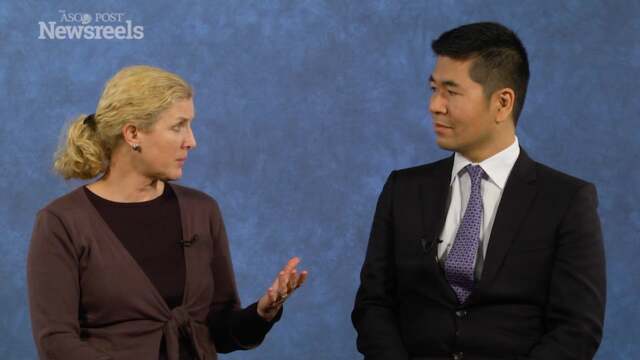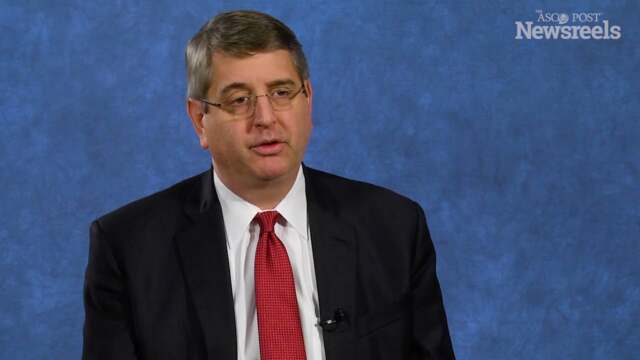Patricia A. Ganz, MD: Aromatase Inhibitors Data Review
2016 San Antonio Breast Cancer Symposium
Patricia A. Ganz, MD, of the UCLA Jonsson Comprehensive Cancer Center, summarizes two studies on using duloxetine for aromatase inhibitor–associated musculoskeletal symptoms, and aromatase inhibitors’ effect on endothelial function and heart disease (Abstracts S5-06 and S5-07).
Peter Bach, MD, of Memorial Sloan Kettering Cancer Center, summarizes his plenary lecture on drug costs and their effect on the affordability of cancer care worldwide (Plenary Lecture 3).
Aleix Prat, MD, PhD, of the University of Barcelona, discusses in Spanish study findings on intrinsic subtype as a predictor of pathologic complete response following neoadjuvant dual HER2 blockade without chemotherapy in HER2-positive breast cancer (Abstract S3-03).
Samuel Smith, PhD, of Queen Mary University of London, discusses study findings on menopausal symptoms as predictors of long‐term adherence in an International breast cancer intervention study (Abstract S5-03).
Lisa A. Carey, MD, and Maki Tanioka, MD, both of the University of North Carolina, discuss study findings on weekly paclitaxel and trastuzumab with or without lapatinib for HER2-positive breast cancer (Abstract S3-05).
Harold J. Burstein, MD, PhD, from Dana-Farber Cancer Institute, gives an update on the duration of adjuvant endocrine therapy and offers his expert views on putting the research data into clinical practice.





